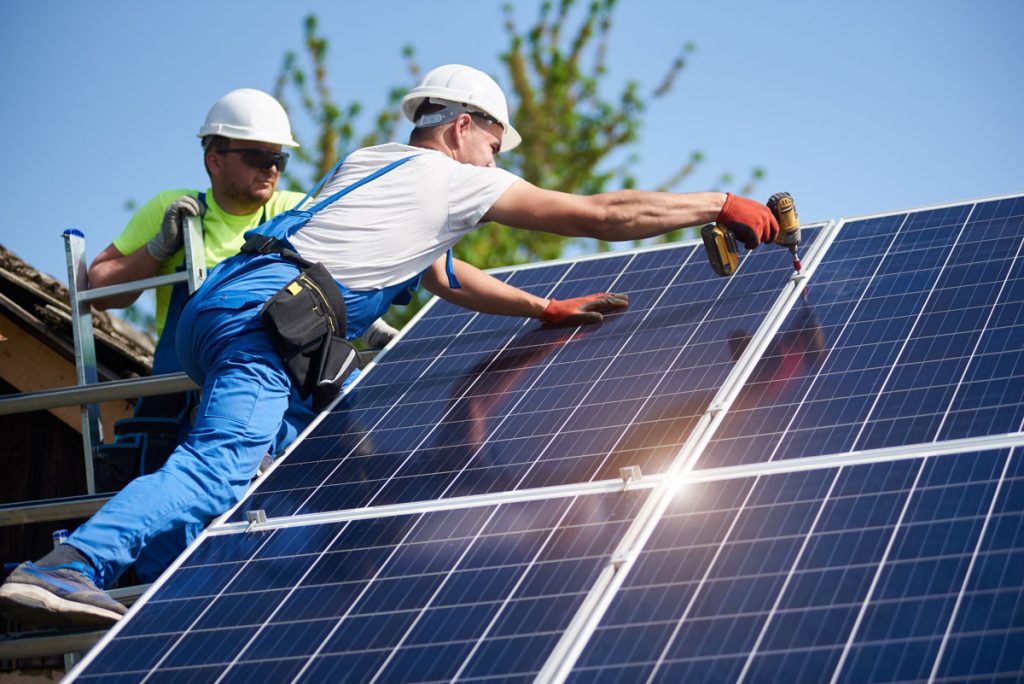 In recent years, the world has witnessed a growing interest in sustainable and environmentally friendly living. As part of this movement, more and more homeowners are turning to solar energy to power their homes. Home solar systems are not only beneficial for the environment, but they also offer numerous advantages for homeowners. In this blog post, we’ll explore the three biggest advantages of a home solar system.
In recent years, the world has witnessed a growing interest in sustainable and environmentally friendly living. As part of this movement, more and more homeowners are turning to solar energy to power their homes. Home solar systems are not only beneficial for the environment, but they also offer numerous advantages for homeowners. In this blog post, we’ll explore the three biggest advantages of a home solar system.
- Reducing Your Electricity Bills
One of the most immediate and compelling advantages of installing a home solar system is the significant reduction in electricity bills. Traditional electricity sources, such as fossil fuels, can be expensive and are subject to fluctuating prices. With a solar panel system, you can generate your own electricity, reducing your reliance on the grid and saving money in the long run.
Here’s how it works: Solar panels capture sunlight and convert it into electricity, which you can use to power your home. Any excess energy that your system generates during the day can be stored in batteries or sent back to the grid for credits. This means that not only can you reduce your electricity bills, but you can also earn money through net metering or feed-in tariffs, depending on your location.
Over time, the initial investment in solar panels can pay for itself, and many homeowners report saving thousands of dollars annually on their energy costs. Plus, solar panel systems typically have low maintenance requirements, which means you’ll save even more in the long term.
- Environmental Benefits
In an era of increasing environmental consciousness, reducing your carbon footprint has never been more important. Home solar systems offer a way for homeowners to make a substantial impact on their environmental impact. Here’s how:
a. Reducing greenhouse gas emissions: Solar power is a clean and renewable energy source, meaning it produces no harmful greenhouse gases. By generating your electricity from the sun, you’re reducing your reliance on fossil fuels, which are a leading contributor to climate change.
b. Conserving natural resources: Solar energy doesn’t deplete finite natural resources like coal, oil, and gas. This sustainable energy source harnesses the power of the sun, which is in no danger of running out any time soon.
c. Decreasing air and water pollution: Traditional energy sources like coal and natural gas produce air and water pollution. Solar panels, on the other hand, create no emissions, helping to improve air quality and protect water resources.
By installing a home solar system, you can take an active role in mitigating climate change and reducing the negative environmental impact of conventional energy production.
- Energy Independence and Resilience
Another advantage of home solar systems is the increased energy independence and resilience they provide. With a solar panel system and energy storage solutions such as batteries, homeowners can:
a. Reduce dependence on the grid: By generating your own electricity, you become less reliant on external energy sources and are less vulnerable to power outages caused by grid failures or natural disasters.
b. Backup power during outages: With the addition of battery storage, your solar system can provide backup power in the event of a blackout, ensuring that essential appliances and systems in your home continue to function.
c. Energy security: Solar energy is abundant and accessible, providing a level of energy security that isn’t possible with traditional energy sources that may be subject to geopolitical or supply chain disruptions.
Home solar systems offer numerous advantages for homeowners, including reduced electricity bills, environmental benefits, and increased energy independence and resilience. These advantages not only make solar power an appealing choice for environmentally conscious individuals but also for those looking to save money and secure their energy future. As technology advances and solar panel costs continue to decrease, the benefits of home solar systems become even more accessible to a wider range of homeowners. Embracing solar energy is not only a smart financial decision but also a step towards a more sustainable and resilient future.


